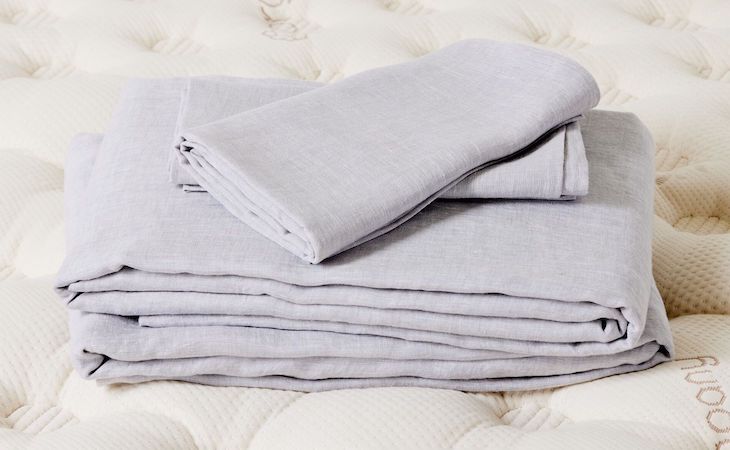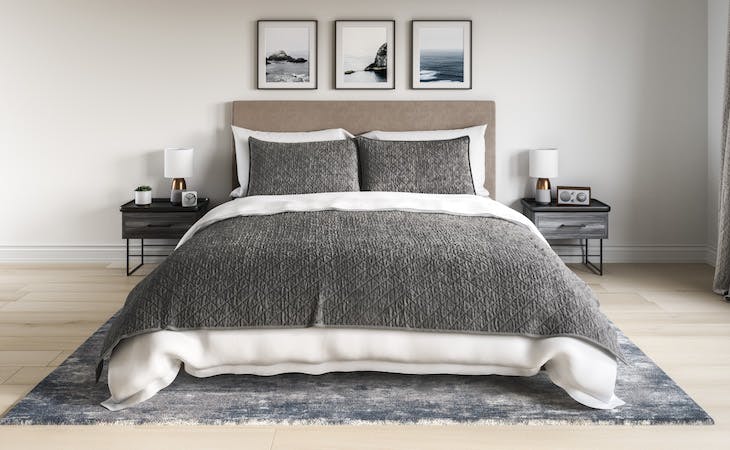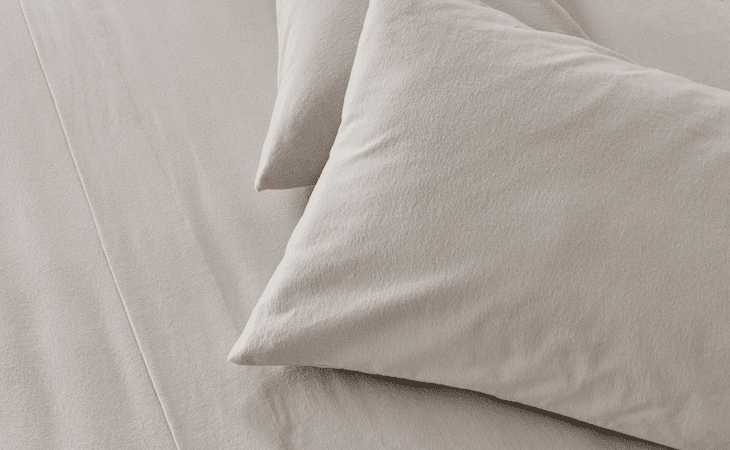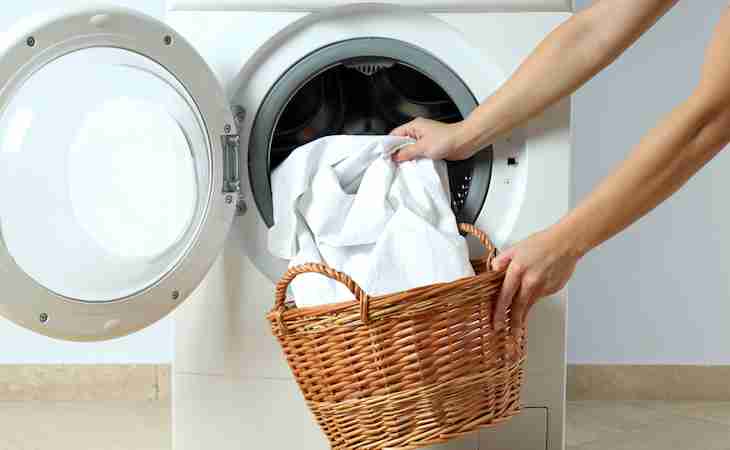If you weren’t concerned about germs before, chances are, after the few years we’ve had? You are now. In the wake of the COVID-19 pandemic, people are more concerned with stopping the spread of bacteria than ever. And one way to stop bacterial spread is to use antimicrobial products—including in the bedroom.
We’ve already covered all the reasons why you should consider sleeping on an antimicrobial mattress—so today, it’s all about the sheets. Let’s take a look at everything you need to know about antimicrobial sheets: what they are, how they work, and how to use them to make your bed a more germ-free place.
What does antimicrobial mean?
First things first. Before we jump into antimicrobial bed sheets, let’s quickly define what, exactly, antimicrobial means.
“Antimicrobial is a term that denotes the ability to maintain lower levels of microbes on or in any given object over a specific period of time,” says microbiologist Jason Tetro. “Microbes can include bacteria, viruses, and fungi.”
What are antimicrobial sheets?
Now that you understand how “antimicrobial” is designed, let’s jump into the specifics of “what are antimicrobial sheets?”
“An antimicrobial sheet has been treated with a special ingredient that allows it to damage microbial species,” says Tetro. “When a bacterium or virus comes into contact with that special ingredient, it is either weakened or killed.”
You can’t tell if a sheet is antimicrobial by looking at it. (“Antimicrobial sheets are visually like other sheets,” says Tetro.) And a variety of fabrics can be made antimicrobial, including wool, linen, and cotton.
One popular—and effective—choice for transforming standard fabrics into antimicrobial ones is silver chloride. According to Tetro, silver chloride has three main antimicrobial mechanisms.
“The first is to damage the outside of the microbe, forcing the insides to come out,” says Tetro. “The second is to interfere with the genetic material so it cannot replicate. The third is attaching to proteins to prevent them from working properly.”
And as a bonus? Silver is “also nontoxic and has little to no environmental impact,” says Tetro.
It’s worth noting that some sheet fabrics are also naturally antimicrobial. Linen and bamboo, for example, are two fabrics that have antimicrobial properties on their own.
Do antimicrobial sheets work?
While it’s nice to know how antimicrobial sheets work, the most important thing to know is if they work—and the answer is yes.
“These sheets usually have gone through a variety of tests in microbiology laboratories to prove they can reduce the number of microbes by a certain percentage,” says Tetro. “Usually, antimicrobial sheets are able to kill 99.9% [of microbes]—but some are more effective.”
And because antimicrobial sheets stay cleaner, longer, you can stretch your time between washes. This is not only better for the environment but can also help you get more wear out of your sheets, which is better for your budget.
“When antimicrobial agents are used in fabrics, one can expect to gain at least three to five times more use,” says Tetro.
One thing to keep in mind? While antimicrobial sheets can help keep germs at bay, they’re not magic. “While antimicrobial bedding can help to reduce the impact of bacteria, viruses, and fungi, they cannot stop the loading of other human secretions such as salt and oil,” says Tetro—so even though you can squeeze more time between washes, make sure you’re still washing your sheets on a regular basis.
FAQs
What do antimicrobial sheets do?
Antimicrobial sheets minimize the microorganisms on sheets—like bacteria, viruses, or fungi—that could negatively impact your health.
What kind of sheets are antimicrobial?
Antimicrobial sheets are any sheets that have been treated with a solution/ingredient that gives the sheet antimicrobial properties (for example, silver chloride). Additionally, linen and bamboo are two naturally antimicrobial sheet fabrics.
Are antimicrobial sheets safe for everyone to use?
While anyone can benefit from using antimicrobial sheets, “people who have skin issues, such as acne and allergies, to fungi such as Aspergillus, may also see a benefit,” says Trello.
Are antimicrobial sheets healthy?
Yes. Sheets with antimicrobial properties can help reduce your exposure to germs and support better health.
Get the best antimicrobial sheets at Saatva
Saatva offers sheets made from
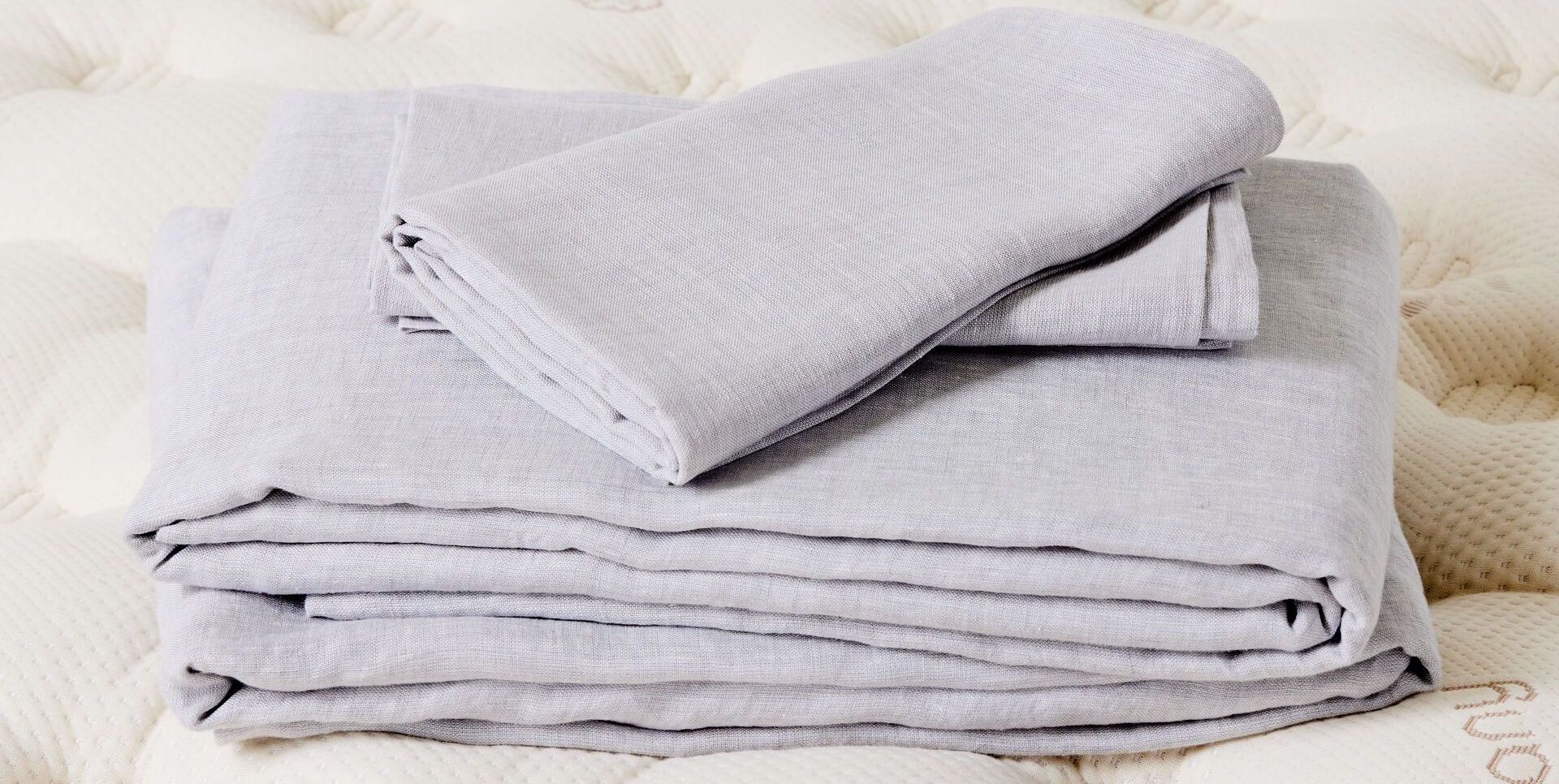
Airy and elegant linen sheets with a relaxed look
, which is naturally antimicrobial and hypoallergenic. Our sheet collection also includes hypoallergenic, moisture-wicking
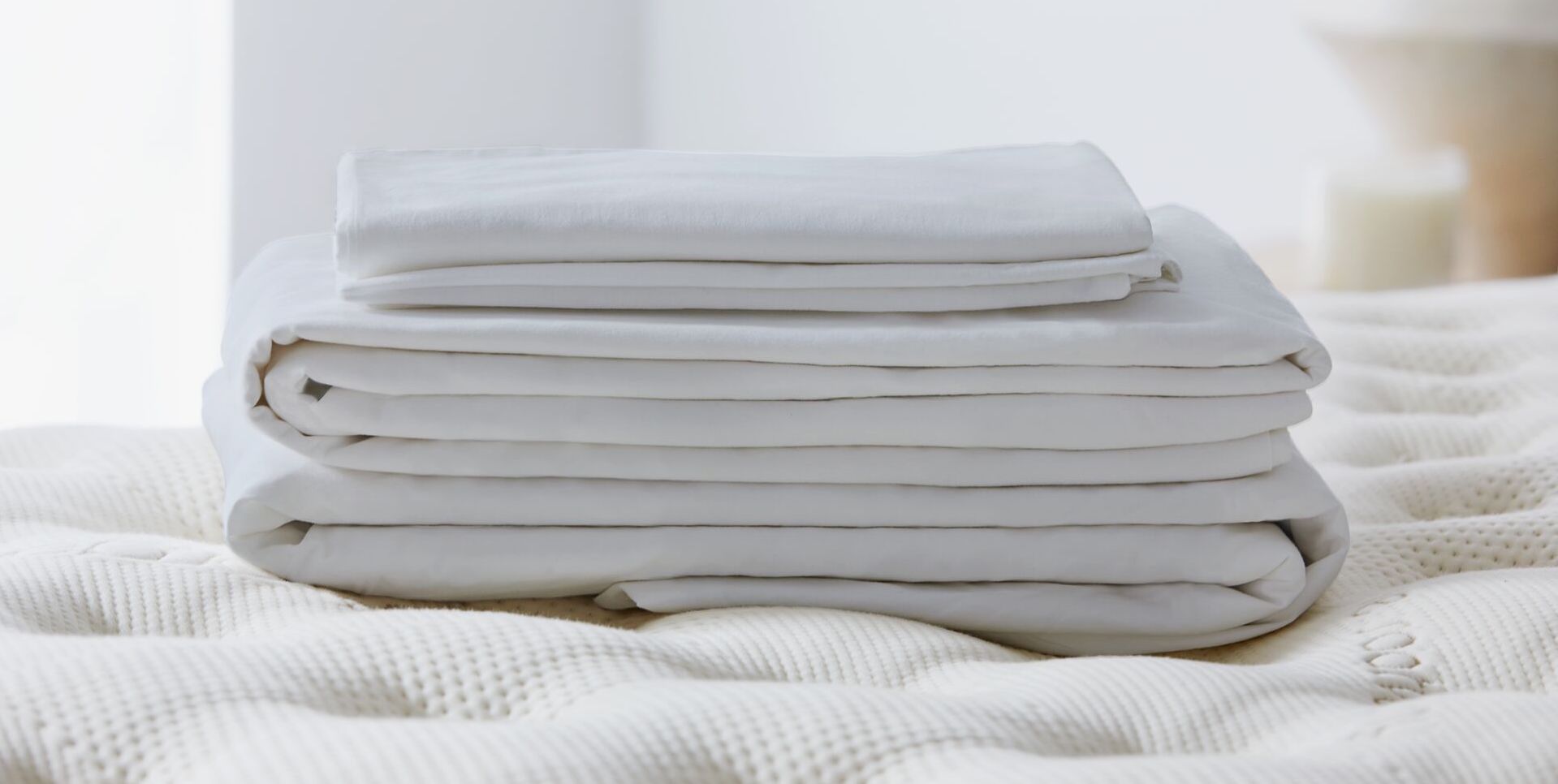
Crisp and cool percale cotton sheets with a luxe matte finish
that meet the highest standards for health and safety. Check out our selection of sheets to find your perfect set.





